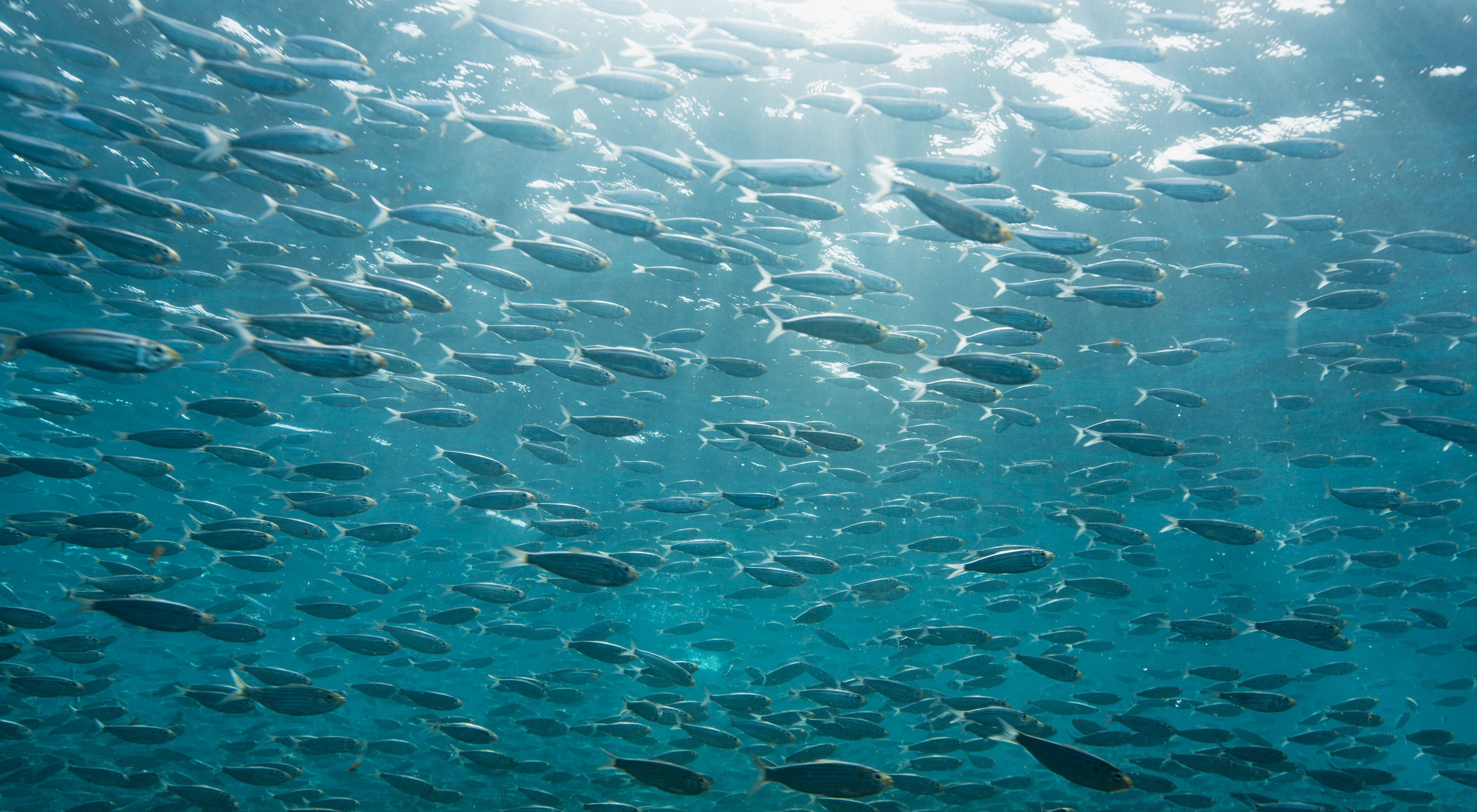We Need a Paris Agreement for the Ocean
By Maria Damanaki, Former Global Ambassador, Oceans
On October 5 and 6, my team and I attended the fourth annual “Our Ocean” conference in Malta, hosted by the European Commission. This annual gathering was launched in 2014 by U.S. Secretary of State John Kerry, with the hope of building momentum around ocean protection, and elevating the concern of a degrading ocean in the public arena.
Has this vision been achieved? I believe we have come a long way—ocean conservation is gradually becoming a mainstream concern, and that is a good thing. We now have multiple yearly ocean gatherings, including one hosted by the Economist, opening the dialogue to stakeholders beyond the conservation world. The ocean has its own Sustainable Development Goal 14, a United Nations conference and a newly appointed Special Envoy for the Ocean. Not a week goes by without one, or several, of the world’s leading media outlets sharing an ocean story.
But how does this translate to meaningful impact for our ocean? Global gatherings have a mixed reputation, often reduced to little more than talk shops. In some cases, this reputation is deserved, but I do believe there is real power in thoughtfully facilitated dialogue and skillful negotiation. More than ever, we need big wins for the ocean—wins that only large-scale, multilateral collaboration can achieve.

Think about what the Paris Agreement achieved. Yes, it took a long, complicated process to get here—but it is difficult to challenge the fact that climate change has made its way into mainstream discourse, and unprecedented action is underway to include climate change in planning and financing, across the spectrum of stakeholders. Governments have set their own targets; industry is largely represented and, in several cases, in the driving seat. Partnership has truly established itself as the new form of leadership. A sense of achievement and global positivity was strongly felt in the wake of the meeting—a sense that the world can come together with intent when it needs to. What the world needs now is a Paris Agreement for the ocean.
July 2017 saw an important step in this direction—one that went largely unnoticed. Countries around the world came together to take the first steps towards protecting the high seas. Currently, 50 percent of our planet is a no-mans’ land: there is no legal mechanism to create protected areas outside of territorial seas, or to undertake environmental impact assessments. Considering the increasing impact of human activity on the ocean—e.g. fishing, shipping, mining—this is a dangerous state of affairs. But the tide is slowly turning, as many countries have recommended initiating treaty negotiations that would lead to protection beyond any country’s national waters. This is a great start and you can imagine the incredible complexity of the discussions that will follow. But if we did it for a global commons like our atmosphere, I believe we can do it for our ocean.
In 2016, 24 countries and the EU agreed to the creation of The Ross Sea Marine Protected Area in the Antarctic; it will be enforced as of December 2017. Covering 1.55 million square kilometers, it is the outcome of skillful negotiation, which drew out the long-term benefits of protecting an area that could produce up to three-quarters of the nutrients that sustain life in the rest of the global ocean. This marked an important leap for ocean conservation, a successful model to pave the way, one which makes me proud—as should be the European Commission and all involved stakeholders.
Governance is a crucial piece of the ocean protection puzzle, but it cannot work alone. Policy decisions must be underpinned by the right science and smart, innovative financial models. This is where partnerships come to play. Our next challenge will be to connect policy with business. A new model of successful international governance is one that is fed by science and supported for implementation not only by policy makers but also by business executives, local communities and financial institutions. I worked through this model, reforming the EU Common Fisheries Policy, and we achieved good results. The days of top down governance are over: it is time for collaboration and partnership, and this is what we strive for at the Nature Conservancy.
Quote
Governance is a crucial piece of the ocean protection puzzle, but it cannot work alone.
Our Blue Growth by Design framework sets forth a holistic and pragmatic approach, where ocean conservation becomes an indispensable partner to development and economic growth. Sound science and innovative financing mechanisms for marine conservation and a Blue Economy are at the heart of our work, helping to inform adequate governance decisions.
We are bringing commitments with us to Malta, which we believe will play an important role in scaling ocean conservation globally. We will continue to invest significantly in our work on mapping ocean wealth and spatial planning, as knowledge of the ocean’s value is crucial to making appropriate investments in preserving its health.
Through a partnership with insurance leader SwissRe and the Mexican government, we are also developing an innovative insurance product to protect natural infrastructure, in this case a coral reef. Knowing that at least 102 countries and territories depend on coral reefs for income (such as through tourism) and for protection (from floods and tidal waves, for example), investing in innovative protection models is crucial.
We will also continue our work in debt conversions, which would be financed by impact-capital Blue Bonds. Enabling nations which are most at risk from a degrading ocean, and climate change, to fund critical conservation efforts is key to building resilience—both for nature and people.
It is my hope that we have entered a new era of international governance for the ocean, built on increased multi-stakeholder collaboration, and yes, framed by the right global gatherings to support change at scale.
